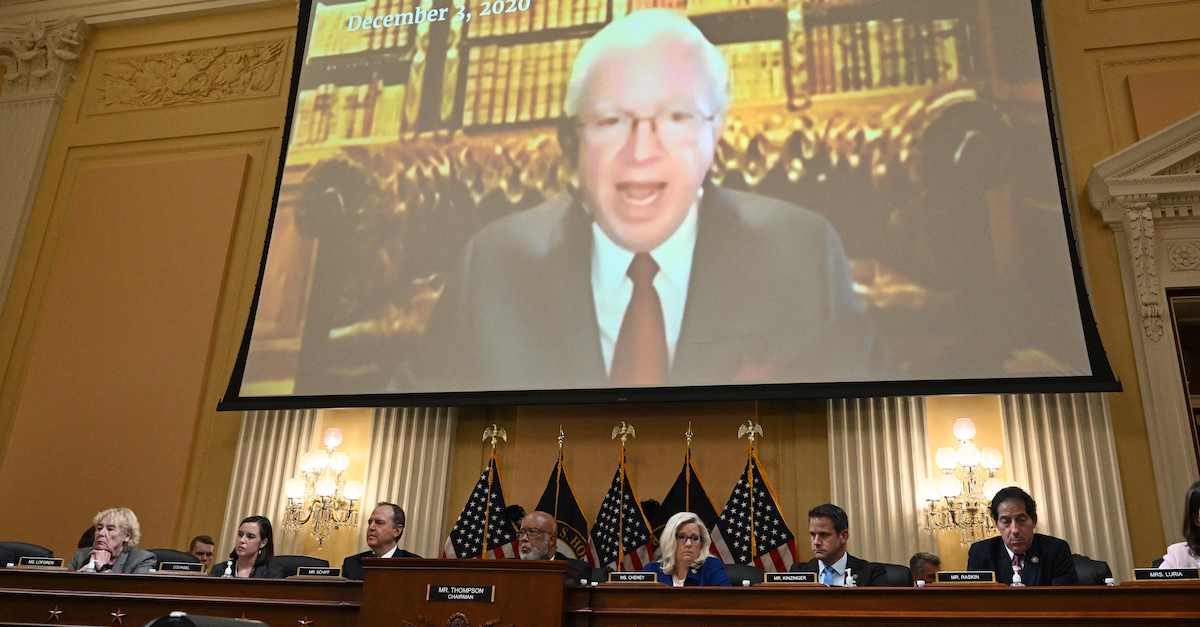
Former lawyer of former President Donald Trump, John Eastman, appears on screen during the fourth hearing by the House Select Committee to Investigate the January 6th Attack on the US Capitol in the Cannon House Office Building on June 21, 2022 in Washington, DC.
A retired law professor and former election lawyer for Donald Trump at the center of the Jan. 6 Committee’s investigation into the attack on the Capitol has dismissed the lawsuit he brought against the congressional inquiry and his phone carrier Verizon.
The blink-and-you-might-miss-it entry on the docket Tuesday shows the stipulation of voluntary dismissal was agreed upon by both sides. The filing notes that the Jan. 6 Committee told the court that the Eastman subpoena was not seeking the contents of his communications but rather his call logs:
Pursuant to Federal Rule of Civil Procedure 41(a)(1)(A)(ii), Plaintiff, though his counsel, hereby gives notice that the above-styled action is voluntarily dismissed, without prejudice. All defendants have, through their counsel, signed this stipulation of dismissal.
Plaintiff brought this lawsuit primarily to protect the content of his communications, many of which are privileged. See, e.g., Complaint, ECF #1, ¶¶ 26-27. The Congressional Defendants represented in their motion to dismiss that they were not seeking the content of any of Plaintiff’s communications via the subpoena they had issued to Defendant Verizon. See, e.g., ECF #18, p. 18 (“the subpoena does not seek the contents of any communication”).
As Law&Crime previously reported on the subject in December 2021, legal commentators didn’t have high hopes for Eastman’s attempt to stop congressional investigators from obtaining his cell phone records. The lawsuit in the U.S. District Court for the District of Columbia sought an injunction by arguing the committee’s subpoena was issued “in furtherance of law enforcement rather than legislative purposes” and, thus, was “invalid and unenforceable.”
“Without prior notice to Dr. Eastman, the J6 Committee issued a subpoena to Verizon requesting records for Dr. Eastman’s personal cell phone,” the lawsuit said, aiming to keep congressional investigators from obtaining all “call, message (SMS & MMS), Internet Protocol (IP), and data-connection detail records” associated with his phone number — “including all phone numbers, IP addresses, or devices that communicated with [his number] via delivered and undelivered inbound, outbound, and routed calls, messages, voicemail, and data connections” over a three-month period.
Law&Crime reached out to Eastman attorney Charles Burnham for comment on the dismissal.
The stipulation of voluntary dismissal appears below:
Colin Kalmbacher contributed to this report.
[Image via MANDEL NGAN/AFP via Getty Images]